The European Union is again in conflict with Hungary. This time, the European Court of Justice opposed a Hungarian requirement that groups receiving foreign funding identify themselves as such and disclose information about their donors.
The Court found that Hungary’s restrictions on funding of civil society organizations were illegal, and called the policy of disclosure of sponsors “discriminatory and unjustified”. The European Court of Justice has found that “the measures which it lays down are such as to create a climate of distrust with regard to those associations and foundations.”
Nevertheless, Hungary, despite the court decision, insists on the measure. Civil organizations involved in Hungarian politics will still have to disclose their foreign donors, said Prime Minister Viktor Orban immediately after the judges’ decision.
Anti-Soros
According to the Act of 2017 in Hungary, NGOs – as non-governmental organizations receiving foreign funding – are obliged to identify themselves as such and disclose information about their donors and income.
This law was adopted as part of the fight against the George Soros Foundation and numerous organizations promoting liberal values and (which was especially actual in 2015) encouraging migration to Europe.
Orban’s relationship with Soros has come a long way: once colleagues, at some point they became real ideological enemies. Orban, having adopted the right agenda, gradually shifted his rhetoric “to the right” and embarked on a project of national development. It was during this time that Hungary became widely known on the international arena as a country that shared traditional European values and rebelled against undesirable neoliberal decisions (economic, migration, LGBT, etc.).
Soros continued along a neoliberal course, creating a global network of organizations and NGOs that received shadow funding to promote their agenda and organizing “color revolutions”.
In 2016, Orban announced that next year will be dedicated to squeezing out Soros and his networks. Indeed, the following year, the government’s campaign reached new heights when Orban’s party adopted a series of legislative measures aimed at organizations receiving funding from Open Society Foundations and laid the legal foundation for the expulsion of Central European University from Hungary. The effort was partially successful – the headquarters moved from Budapest to Vienna. However, the organization is still operating – but things are getting more complicated every year.
According to current Hungarian law, organisations receiving more than 21,000 euros from sources outside Hungary must be registered as organisations funded abroad. Also, according to the law, organizations that donate more than 1500 EUR must be registered in a public register. This already imposes some obligations.
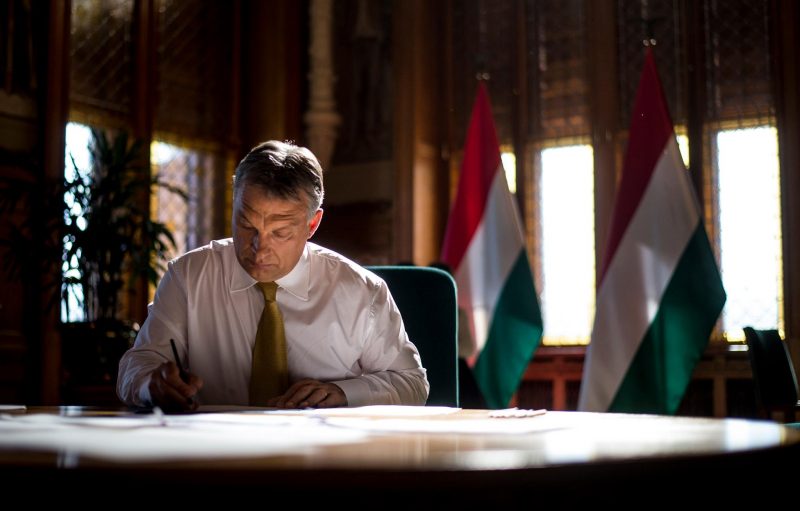
In July and August 2018, two pieces of legislation came into force in Hungary against groups or individuals promoting illegal immigration. The first measure criminalized the “organization of activities” that support asylum and residence permit applications. The second measure imposes a 25% tax on donations or funding to any group that promotes mass migration.
When Orban finally managed to take control of the main media resources in Hungary, he won back his old “friend” with a poster campaign in 2019: for at least a month, the billboards of Hungarian cities were blown with provocative photos of Soros and the former head of the European Commission Jean-Claude Juncker.
Thus, the Hungarian campaign is a consistent set of measures that make it possible to identify the most dependent on foreign funding organizations and to trace the political goals for which large funds are being transferred.
The rule on financial disclosure has been condemned by EU officials and civil society defenders. Some have compared it to a law passed in Russia in 2012 that requires non-profit groups receiving foreign funding to identify themselves as foreign agents.
The Expert Council on NGO law even produced an entire brochure in 2017 on Hungary, accusing the country of human rights violations (published on the Council of Europe website).
Liberal imperialism in Western Europe
But even after the ruling of the European Court of Justice has been made public, Hungary is not in a hurry to repeal the rules at home.
“All Hungarians will know about each and every front of funding sent here from abroad for political purposes,” Orban told state radio.
The prime minister added that, although a court ruled against Hungary, it was said in Luxembourg that the transparency of the non-governmental organizations is important and should be maintained.
Hungary's response to @EUCourtPress ruling: We'll stay committed to ensuring the transparency of NGOs; the measures introduced in 2017 do NOT impede the financing and functioning of NGOs @JuditVarga_EU
— Zoltan Kovacs (@zoltanspox) June 18, 2020
“…Transparency is a value that a government rightly sets as a goal, and the Hungarian people decided well when they supported it in the national consultation…
There can be no stricter rule for political parties than for organizations that influence political thinking; you need to know exactly who is investing, where they are investing, and how much money they are putting into organizations and politics”
The court’s decision, Orban stressed, is linked to circles of liberal imperialism in Western Europe, which want to impose their vision of family and migration to those countries that think differently than Hungary.
International courts are often part of this network, said the Hungarian leader.
Hungarian precedents
Following his return to power in 2010 with a parliamentary supermajority that enabled the ruling party to amend the Constitution, Orban and his allies changed the country’s judicial system and gradually took control of the main media resources.
Hungary is both a balancing act and a “bad guy” in the EU (often together with his colleague in the Visegrad Four, Poland) and stresses the importance of the European path.
In recent years, the country has been repeatedly threatened with cutting EU funding. This has had an impact on the European elections, for example, when the EPP party made every effort to squeeze Fidesz out of the bloc (the party’s membership in the EPP is still in the suspended membership).
The game continues – Hungary makes concessions but also continues to attack in order to feel the ground for a possible degree of resistance. Last month, when a court found that Hungary’s policy to detain migrants and asylum-seekers in the transit zone at the country’s border amounted to illegal detention, György Bacondi, the head of Mr. Orbán’s security service, told Hungarian television that the Government would not accept the decision. However, within a few days, almost 300 asylum-seekers had been transferred to open and semi-open camps elsewhere in the country.
Thus, Budapest cannot make concessions at all. But it cannot and does not want to support completely new “European values” either.
The NGO problem in Europe
The problem of NGO funding goes far beyond Hungary. Numerous large and small foundations, NGOs and movements receive anonymous donations, and most countries are not required by law to account for this. For example, the Black Lives Matter movement in the US, which we wrote about earlier, is an umbrella organization that receives colossal funds – thus, political and public initiatives are clearly not only fueled by civic enthusiasm.
In Hungary, ultra-liberal organizations such as Amnesty International and the Open Society Foundation have lodged special complaints. These groups have the most vague funding and have long worked against the Orban government with an ultra-liberal agenda.
In particular, these organizations have complained that the negative consequences may be the refusal of anonymous sponsors from financial participation in the projects, as they are unwilling to disclose the names – allegedly for “fear of reprisal”.
The same organizations oppose any initiative of the Government aimed at strengthening its sovereignty. As an illustration, the NGO’s reaction to the Budapest initiative to temporarily strengthen the government’s authority in the emergency regime to simplify decision-making due to a complex bureaucratic system. Thus, during the coronavirus epidemic, the TASZ (Hungarian Civil Liberties Union), the Hungarian Helsinki Committee, and Amnesty International Hungary considered that the lifting of the emergency regime did not stop the state of emergency. The task of these NGOs is to draw a totalitarian picture of hopelessness and widespread control.
When it comes to the coronavirus, their accusations are easily reputed by the result: the Hungarian health system coped with the epidemic better than Western European countries. Hungary’s preparation for possible mass infections was based on “military logic” and the worst-case scenario was avoided.
NGO rulers
It should be noted that NGOs (especially through Soros) are distinguished by impunity and openly try to put pressure on European higher authorities. And they do not hide it.
For example, they can persuade one EU country to oppose another through political channels, which is inconvenient for them. Thus, the organization “Civil Liberties for Europe”, created by the Open Society Foundation Soros, tried to persuade the German Foreign Ministry to interfere with the law on NGO financing inside Hungary.
When asked how Germany could fight the Hungarian law, the head of the Civil Liberties Union for Europe Balázs Dénes, the group’s Berlin-based executive director, discussed factories in Hungary owned by Mercedes, Audi and Bosch.
“Germany, because of the German investors and German companies, is an influential player in Hungary. So if the German Foreign Ministry wants something, they can, they have means,” Dénes said.
He went on to openly admit that it would be a good idea for human rights defenders to control the EU:
“The big reason why I was recruited five years ago by OSF was the recognition that at the moment in Europe, there is no human rights group which is able to control the EU,” Dénes said.
“An international organization such as mine should be able to tell different foreign governments what could be their policy over another government’s policy.”
According to official data, the Commission implements an estimated 1.7% of the EU budget and 6.8% of the European Development Funds (EDFs) through NGOs.
They operate in many policy areas, such as humanitarian aid, development, environment and research and innovation, and such organisations help the Commission to develop, implement and monitor EU programmes. Between 2014 and 2017, they will be active in many policy areas, such as humanitarian assistance, development, environment and research and innovation. The Commission has allocated 11.3 billion euros to NGO programmes. The European Parliament has often expressed interest in NGOs and their funding.
Plus, foreign funding for NGOs.
Approximately 80% of EU funding sources for NGOs are managed by EU countries themselves. Each country provides detailed information on funding and application procedures on the governing bodies’ websites. The rest is managed by the Commission or other EU bodies.
NGOs working in these areas can receive support from the European Social Fund (ESF). These funds are managed by the governing bodies in the region or EU country.
It is paradoxical that the EU, which calls for transparency in financial transactions, does not publish data on financial flows to the largest NGOs in Europe. Moreover, the European Court of Justice itself recognized the NGO funding system as not sufficiently transparent:
“We concluded that the Commission was not sufficiently transparent regarding the implementation of EU funds by NGOs”.
Thus, within the EU, they try not to focus on the nuances of sponsoring organizations. However, this is of crucial importance at the domestic level, especially for Hungary, where the division “friend or foe” due to recent political disagreements is becoming fundamental.
Will Hungary be punished?
According to legal experts, in order to implement this decision, Hungary would have to repeal the law as it was written. If it refuses to do so, it may be subject to sanctions, including possible financial sanctions.
However, in addition to Orban, other Hungarian politicians had also expressed irony about the court decision.
Justice Minister Judit Varga, in a statement issued on behalf of the government, said that the ruling did not provide “a single specific item of data or evidence” showing the law was unduly cumbersome.
The #CJEU confirmed today that requiring #transparency of #NGO funding is a legitimate purpose. Interestingly enough, while the #EU aims at establishing a transparency register, the HU rules are criticized. #HU Gov will continue to ensure transparency in line with the judgment.
— Judit Varga (@JuditVarga_EU) June 18, 2020
The public has a right to expect NGOs to work transparently with regard to their funding, she stressed.
Gergely Gulyas, head of the Prime Minister’s Office, said at a weekly press briefing on Thursday when asked about the decision that Hungary has always “respected” court decisions in the past and will do so in the future. At the same time, Gulyas stressed that the court ruling called for greater transparency in the activities of non-governmental organizations.
Hungary is becoming an important supplier of unique precedents in the history of the European Union and a “litmus test” as far as it is possible today to preserve the internal sovereignty and key state decisions while trying to find common values within the European bloc.
NGOs are shadow organizations, which are often not responsible for public sentiment, but play concrete political games. The current decision of the European Court of Justice clearly points to a coordinated attack on Hungary.
After the decision was made on transit zones for migrants, which had seriously damaged Hungary’s interests and border protection, the EU Court clearly sided with Soros’ organizations.
Thus, the fight for transparency of NGO financing is not just a law on “rights”, it is an opportunity for countries to control their own domestic political situation and to protect themselves from the introduction of globalist elements.







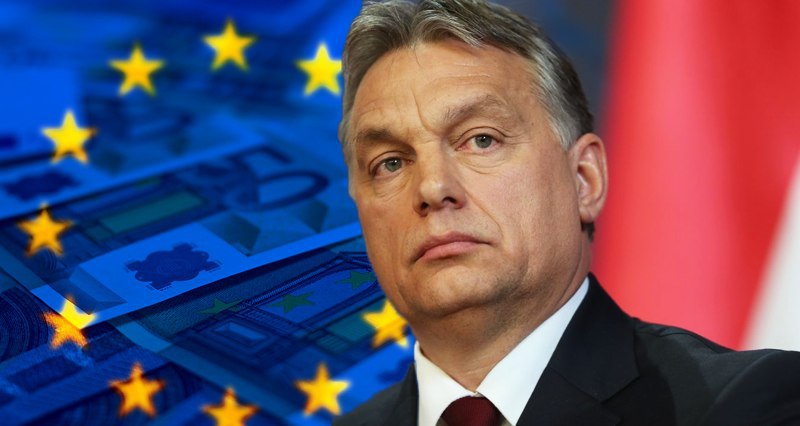
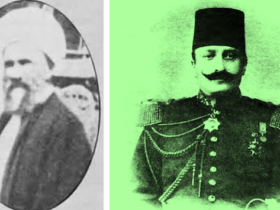
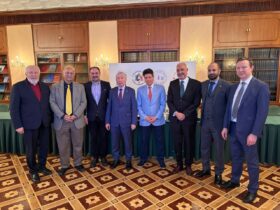




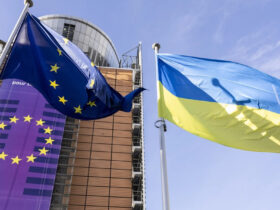


Leave a Reply